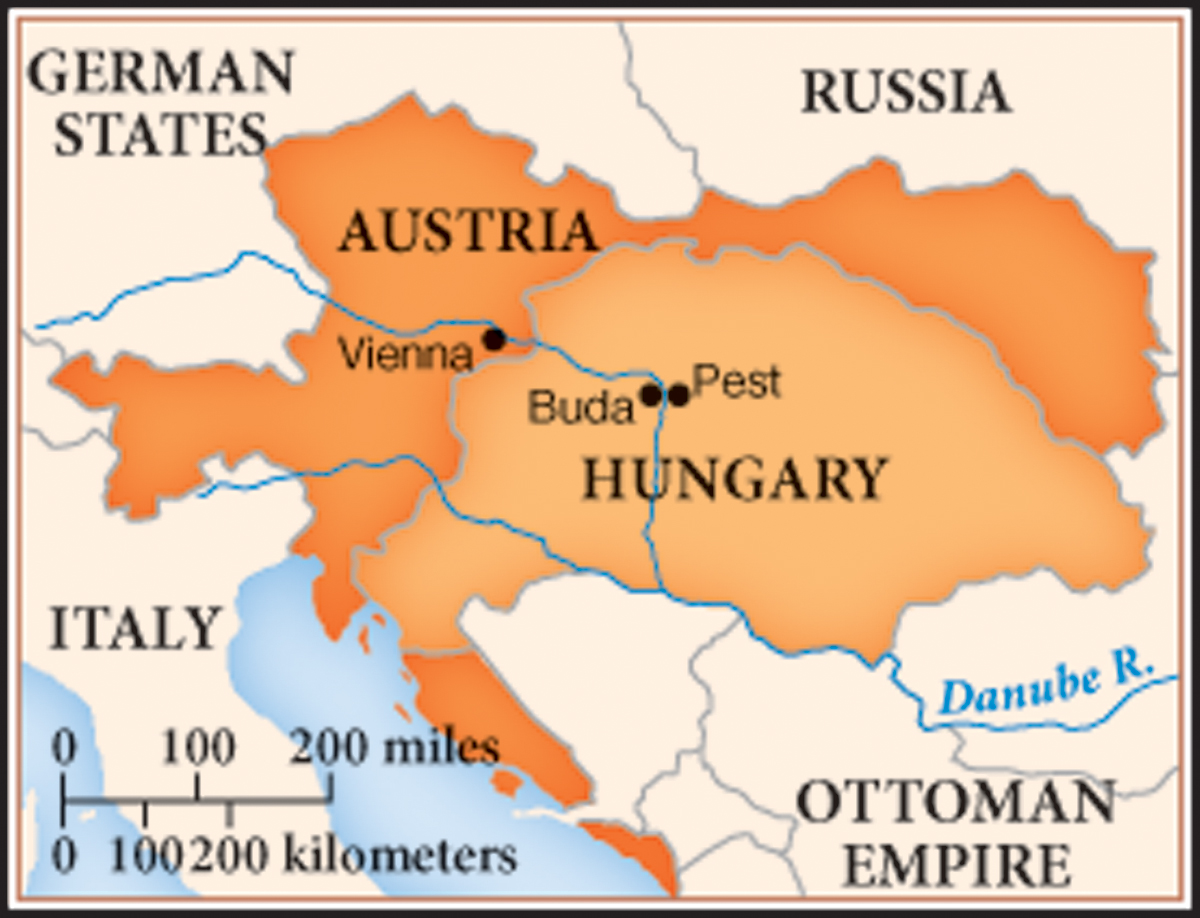Francis Joseph and the Creation of the Austro-Hungarian Monarchy
Francis Joseph and the Creation of the Austro-Hungarian Monarchy
The Austrian monarchy took a different approach to nation building, proving that there was no one blueprint for the modern nation-state. The confrontations with Cavour and Bismarck left the Habsburg Empire struggling to keep its standing in a rapidly changing Europe. The young monarch Francis Joseph (r. 1848–1916) favored absolutist rule and enhanced his authority through stiff court ceremonies, playing to the popular fascination with celebrity and power. Though the emperor resisted reform, official standards of honesty and efficiency improved, and the government promoted local education. The administration used the German language and the schools taught it, but the government respected the rights of national minorities—Czechs and Poles, for instance—to receive education and communicate with officials in their native tongues. Above all, the government boosted railway construction, attracted foreign capital, and helped trade to flow by abolishing most internal customs barriers. Like Paris, the capital city of Vienna underwent extensive rebuilding, and industrialization progressed, if unevenly.

In the fast-moving nineteenth century, the absolutist Austrian emperor Francis Joseph could not match Bismarck in nation building. Too much of the old regime remained as a roadblock: the Catholic church controlled education and civil institutions such as marriage, prosperous liberals lacked representation in such important policy matters as taxation and finance, and police informers swarmed around them. Wanting truly representative government and free speech, the liberals prevented measures—such as providing funds for modernizing the military—that would have strengthened the reactionary government in Austria. Unlike Bismarck in Prussia, there was no one to override the liberals to bring about change.
After Prussia’s 1866 victory over Austria, the vast, wealthy kingdom of Hungary became the key to the Habsburg Empire’s existence. The leaders of the Hungarian agrarian elites forced the Austrian emperor to accept a dual monarchy—that is, one in which the Magyars had home rule over the Hungarian kingdom within the Habsburg lands. This agreement restored the Hungarian parliament and gave it control of internal policy (including the right to decide how to treat Hungary’s ethnic minorities). Although the Habsburg emperor Francis Joseph was king of Hungary and Austro-Hungarian foreign policy was coordinated from Vienna, the Hungarians mostly ruled themselves after 1867, weakening the process of nation building in the empire.
Although designed specifically to address the Hungarian demands, the dual monarchy led to claims by Czechs, Slovaks, and other national groups in the Habsburg Empire for a similar kind of self-rule. Czechs who had helped the empire advance industrially, for example, wanted Hungarian-style liberties. Other leaders of dissatisfied ethnic groups turned to Pan-Slavism—that is, the loyalty of all ethnic Slavs across national boundaries. Instead of looking toward Vienna, they turned to the largest Slavic country—Russia—as key to achieving the unity of all Slavs. With so many competing ethnicities, the Austro-Hungarian monarchy remained a dynastic state in which people could show loyalty to the Habsburg dynasty but had difficulty relating to one another as members of a single nation.